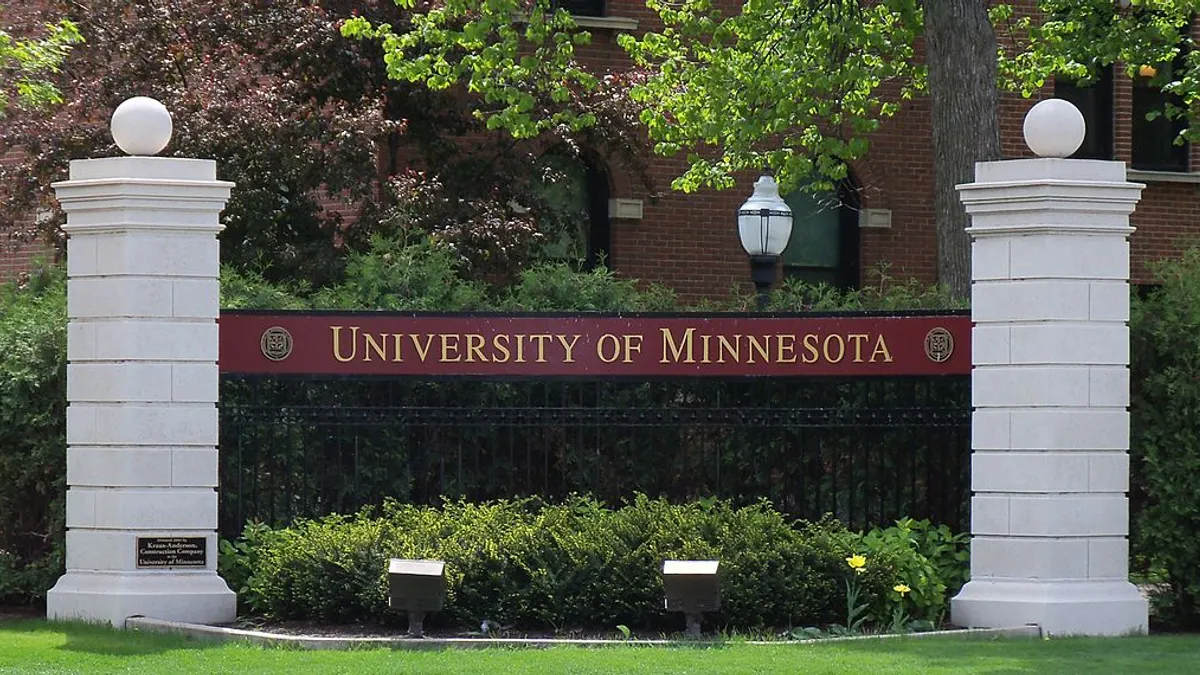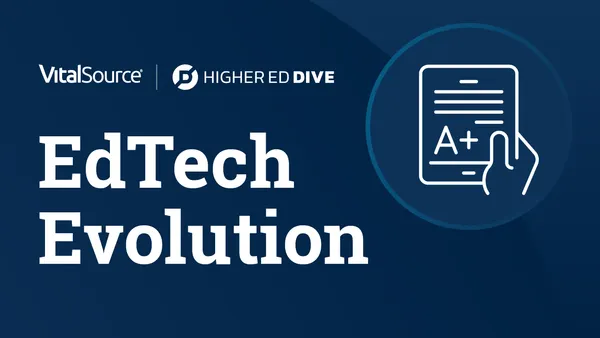Dive Brief:
- Executives at Zovio, formerly known as Bridgepoint Education, told analysts during a call Wednesday to discuss its second-quarter earnings that it expects to separate Ashford University as an independent nonprofit by the end of the year.
- Andrew Clark, Zovio's CEO, said on the call that the move to spin off the formerly for-profit college was delayed because the company "mistakenly provided partially incorrect information" on part of its application for the U.S. Education Department's abbreviated preacquisition review.
- Meanwhile, Zovio is continuing to build out its education technology services stack and forge partnerships with companies and colleges. This follows a broader trend in higher ed's for-profit sector.
Dive Insight:
Zovio's transition from for-profit college operator to education technology services provider is in full swing. In the last year, it has brought in new leadership, changed its name and branding, expanded its offerings through acquisitions and started adding partners whose curriculum it will support.
Accreditor approval of Zovio's plans for Ashford came in July and was an "important milestone in the process to separate and transform" both entities, Clark said. The IRS signed off on the move in February. Clark said Zovio and Ashford would "prefer to have the department's view," provided through its review, before going forward.
WASC Senior College and University Commission's (WSCUC) approval came with the caveat Ashford would show that its officers and related parties have divested of their financial and ownership interests in Zovio. An administrative update to its online program management (OPM) agreement with Zovio is also required, along with a site visit six months after the change occurs.
"The level of inquiry into the independence that Ashford would have after the transaction and its ability to manage its business affairs was unusually detailed to allow the commission to make the necessary determination," WSCUC President Jamienne Studley told Education Dive in an interview.
Ashford will still factor into Zovio's strategy. The company says it will work with Ashford to provide "certain services" and hopes to forge similar relationships with other colleges and companies.
Enrollment at Ashford decreased 5% year-over-year to 37,910 students. Clark attributed the drop to low retention rates during students' first course despite year-over-year growth in new student inquiries and applications. Zovio is working the university to improve retention, though executives on the call didn't say how they would do so.
WSCUC issued a formal notice of concern in its last accreditation review of Ashford, asking for more information and a special visit to show progress on students' persistence and completion rates.
Zovio is also tapping into employers' desire to offer education as a corporate benefit with the launch of its Employer Services division earlier this year. That is expected to provide another link to Ashford. For instance, through a new partnership with Delta Airlines, Zovio will help the company's employees access subsidized associate, bachelor's and master's degrees at Ashford.
The company also announced it will offer short-courses with Forbes Media. And a partnership between its recently acquired Fullstack Academy and the University of San Diego's continuing education division will offer a boot camp in cybersecurity. Its tutoring platform, TutorMe, which it acquired in April, is working with McGraw-Hill to pilot offering tutoring support for students using certain products from the publisher in four course areas.
Those acquisitions and organic investment "have established the foundation for Zovio's education technology ecosystem," Clark said, "which we will continue to build in the coming years."
In April, Zovio's chief operating officer, Greg Finkelstein, told Education Dive that the company may consider picking up a "more traditional" online program manager.
Zovio's pivot mirrors other for-profit college operators as they shift into the role of services providers, often maintaining relationships with their former universities.
For example, Grand Canyon Education (GCE) began providing certain technology, academic, counseling and marketing and communications support to Grand Canyon University in exchange for 60% of its revenue from tuition and fees after it sold the university's assets to a nonprofit entity last year. GCE hopes to add more university partners in the next year.
Adtalem Global Education, which offloaded its DeVry University and Carrington College, is also underway with a similar shift.
This article has been updated to include comments from WASC Senior College and University Commission.













